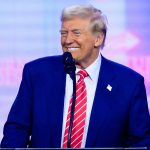The fate of TikTok in the United States has been a turbulent journey, marked by political maneuvering, national security concerns, and debates about free speech. The popular social media app, owned by Chinese company ByteDance, faced a looming ban under the Biden administration, a decision inherited from the previous Trump administration. This ban, which ultimately went into effect, sparked concerns about censorship, government overreach, and the potential impact on millions of American users and businesses. However, a dramatic turn of events saw the ban temporarily lifted following a statement from former President Trump, promising to postpone its implementation upon his return to office. This unexpected reprieve offered a glimmer of hope for TikTok’s continued operation in the US, at least for the time being.
TikTok’s temporary resurrection came as a welcome relief to its vast user base and the numerous small businesses that leverage the platform. The company swiftly worked to restore service, expressing gratitude to former President Trump for providing “clarity and assurance” to its service providers, shielding them from potential penalties. TikTok framed the postponement as a victory for the First Amendment, emphasizing the importance of protecting against arbitrary censorship. The company pledged to collaborate with former President Trump to find a long-term solution that would secure TikTok’s presence in the United States. This suggested a willingness to negotiate and potentially explore options such as an acquisition by a US-based entity.
The initial impetus for the TikTok ban stemmed from national security concerns, with apprehensions surrounding potential data harvesting and influence by the Chinese government. These anxieties arose during the Trump presidency and gained bipartisan support, leading to the eventual legislation. However, critics argued that the ban transcended national security concerns, representing a broader effort to control social media platforms, both foreign and domestic. They pointed to the law’s potential implications for other companies, suggesting it could be used to pressure platforms into censoring content and manipulating algorithms. This raised alarm bells about the potential erosion of free speech and the government’s growing influence over online discourse.
Key figures voiced their opposition to the ban, highlighting its potential chilling effect on free expression. Former US Congressman Justin Amash argued that the law was not solely about TikTok but a tool to control individuals like Elon Musk, who challenge government attempts to regulate online content. He further asserted that the law granted the government excessive power to pressure platforms, including X (formerly Twitter), to engage in censorship and algorithm manipulation. This critique underscored the potential for the law to be weaponized against a wide range of online platforms, not just those with foreign ties.
The resistance to the TikTok ban extended beyond concerns about censorship to encompass acts of civil disobedience. Kentucky Representative Thomas Massie raised concerns about the enforceability of the ban, suggesting it would require prosecuting US citizens. Senator Rand Paul, in a symbolic act of defiance, created a TikTok account on the eve of the ban’s implementation, framing it as a form of civil disobedience. He urged TikTok users to resist the ban, arguing that it infringed upon First Amendment rights. This act of protest highlighted the growing tension between national security concerns and individual liberties in the digital age.
The TikTok saga underscores the complex interplay between national security, free speech, and the power dynamics in the digital realm. The ban, while temporarily lifted, remains a looming threat. The potential for a long-term resolution hinges on negotiations and the possibility of an acquisition by a US-based entity. Figures like Elon Musk and popular YouTuber Mr. Beast have been mentioned as potential buyers, but the future ownership and operational structure of TikTok in the US remain uncertain. The ongoing debate surrounding TikTok’s fate serves as a microcosm of the larger challenges facing governments and societies as they grapple with the evolving landscape of social media and its implications for national security, individual liberties, and the future of online discourse.



